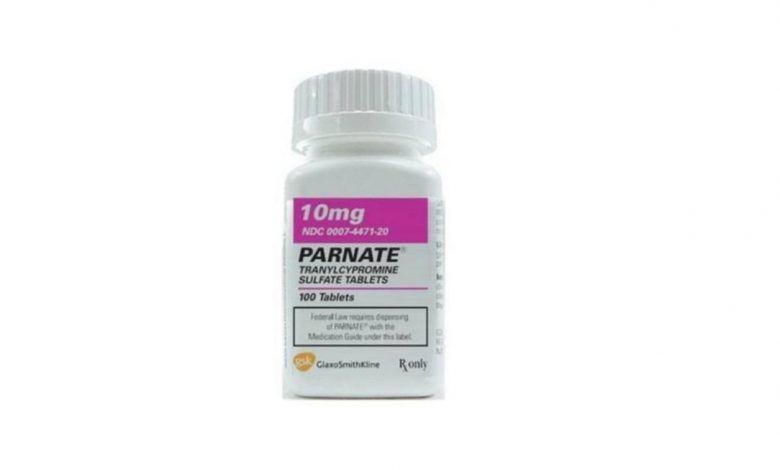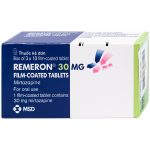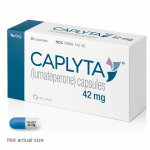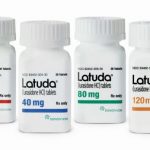Tranylcypromine (Parnate): Uses, Benefits, Dosage, Side Effects, Reviews

What Is Tranylcypromine (Parnate) And What Does It Treat?
Tranylcypromine (Parnate) is an antidepressant that belongs to a class of medications called monoamine oxidase inhibitors (MAOIs). It works by increasing the amounts of certain natural substances that are needed to maintain mental balance.
Tranylcypromine was synthesized and reported in 1946 by Burger and Yost in an attempt to find clinically useful congeners of amphetamine. Marketed in February 1961 as Parnate 10 mg tablets, tranylcypromine was accepted in New and Nonofficial drugs in 1962. Tranylcypromine (Parnate) is FDA-approved for the treatment of major depressive disorder (MDD).
What Is The Most Important Information I Should Know About Tranylcypromine (Parnate)?
Do not stop taking Tranylcypromine (Parnate), even when you feel better. With input from you, your health care provider will assess how long you will need to take the medicine.
Missing doses of Tranylcypromine (Parnate) may increase your risk for relapse in your symptoms.
Stopping Tranylcypromine (Parnate) abruptly may result in one or more of the following withdrawal symptoms: irritability, nausea, dizziness, vomiting, nightmares, headache, and/or paresthesias (prickling, tingling sensation on the skin).
Depression is also a part of bipolar illness. People with bipolar disorder who take antidepressants may be at risk for “switching” from depression into mania. Symptoms of mania include “high” or irritable mood, very high self-esteem, decreased need for sleep, pressure to keep talking, racing thoughts, being easily distracted, frequently involved in activities with a large risk for bad consequences (for example, excessive buying sprees).
Medical attention should be sought if serotonin syndrome is suspected. Please refer to serious side effects for signs/symptoms.
What Should I Discuss With My Health Care Provider Before Taking Tranylcypromine (Parnate)?
• Symptoms of your condition that bother you the most
• If you have thoughts of suicide or harming yourself
• Medications you have taken in the past for your condition, whether they were effective or caused any adverse effects
• If you experience side effects from your medications, discuss them with your provider. Some side effects may pass with time, but others may require changes in the medication.
• Any other psychiatric or medical problems you have, including a history of bipolar disorder
• All other medications you are currently taking (including over the counter products, herbal and nutritional supplements) and any medication allergies you have
• Other non-medication treatments you are receiving, such as talk therapy or substance abuse treatment. Your provider can explain how these different treatments work with the medication.
• If you are pregnant, plan to become pregnant, or are breastfeeding
• If you drink alcohol or use drugs
How Should I Take Tranylcypromine (Parnate)?
Tranylcypromine (Parnate) is usually taken one to three times per day depending on the dose with or without food.
Typically, patients begin at a low dose of medicine and the dose is increased slowly over several weeks.
The dose usually ranges from 10mg to 60mg. Only your health care provider can determine the correct dose for you.
Consider using a calendar, pillbox, alarm clock, or cell phone alert to help you remember to take your medication. You may also ask a family member or friend to remind you or check in with you to be sure you are taking your medication.
What Happens If I Miss A Dose Of Tranylcypromine (Parnate)?
If you miss a dose of Tranylcypromine (Parnate), take it as soon as you remember unless it is closer to the time of your next dose. Discuss this with your health care provider. Do not double your next dose or take more than what is prescribed.
What Should I Avoid While Taking Tranylcypromine (Parnate)?
Avoid drinking alcohol or using illegal drugs while you are taking antidepressant medications. They may decrease the benefits (e.g., worsen your condition) and increase adverse effects (e.g., sedation) of the medication.
Special dietary considerations: Foods rich in tyramine may cause a sudden and severe high blood pressure (hypertensive crisis). Avoid high protein food that has undergone protein breakdown via aging, fermentation, pickling, smoking, or bacterial contamination. Also, avoid beverages containing tyramine. Food freshness is also important; avoid any food that may potentially be spoiled, improperly refrigerated, stored, or handled. It is important to also avoid food with excessive amounts of caffeine and/or chocolate.
Examples of food to avoid include:
• Dry sausage (salami, pepperoni)
• Cheeses (aged cheeses including parmesan, aged cheddar, bleu cheese)
• Beer, wine
• Pickled herring
• Liver
• Fava or broad bean pods
• Sauerkraut
• Avoid foods/beverages with excessive amounts of caffeine/chocolate
These dietary considerations should be taken into consideration for 2 weeks even after Tranylcypromine (Parnate) is discontinued. Discuss with your health care provider any other foods or specific dietary concerns.
What Happens If I Overdose With Tranylcypromine (Parnate)?
If an overdose occurs, call your doctor or 911. You may need urgent medical care. You may also contact the poison control center at 1-800-222-1222. A specific treatment to reverse the effects of Tranylcypromine (Parnate) does not exist.
How Long Does It Take For Tranylcypromine (Parnate) To Work?
Sleep, energy, or appetite may show some improvement within the first 1-2 weeks. Improvement in these physical symptoms can be an important early signal that the medication is working. Depressed mood and lack of interest in activities may need up to 6-8 weeks to fully improve.
Can a pregnant woman take Tranylcypromine (Parnate)?
If you are planning on becoming pregnant, notify your health care provider to best manage your medications. People living with MDD who wish to become pregnant face important decisions. Untreated MDD has risks to the fetus, as well as the mother. It is important to discuss the risks and benefits of treatment with your doctor and caregivers.
Can a breastfeeding woman take Tranylcypromine (Parnate)?
Regarding breastfeeding, caution is advised as Tranylcypromine (Parnate) passes into breast milk. Because little information is available on the use of tranylcypromine during breastfeeding, an alternate drug may be preferred, especially while nursing a newborn or preterm infant.
What Are The Possible Side Effects Of Tranylcypromine (Parnate)?
Common side effects
• Abdominal pain
• Constipation
• Decreased blood pressure (hypotension)
• Dry mouth
• Heart palpitations, increased heart rate
• Itching
• Lack of appetite
• Sedation
• Sexual dysfunction
• Sweating
Rare side effects
• Elevated sodium levels
• Liver dysfunction
• Skin rash
• Seizures
• Hypertensive crisis; especially if low tyramine diet is not followed
• Serotonin Syndrome
Hypertensive crisis (symptoms may include occipital headache-start in the back and radiate to the front, heart palpitations, nausea/vomiting, neck stiffness/soreness, light sensitivity, sweating)
Serotonin syndrome (symptoms may include shivering, diarrhea, confusion, severe muscle tightness, fever, seizures, and death)
Are There Any Risks For Taking Tranylcypromine (Parnate) For Long Periods Of Time?
To date, there are no known problems associated with the long-term use of Tranylcypromine (Parnate). It is a safe and effective medication when used as directed.
What Other Medications May Interact With Tranylcypromine (Parnate)?
Tranylcypromine (Parnate) should not be taken with or within 2 weeks (5 weeks for fluoxetine) of any other mental health medications including other antidepressants, mood stabilizers, antipsychotics, and anti-anxiety medications. Tranylcypromine (Parnate) may also interact with some pain medication, medications for migraines, amphetamines, and antibiotics. Please inform your health care providers of all your current medications and any substance use at the time of prescribing to avoid any potential side effects.
There is an increased risk of serotonin syndrome when Tranylcypromine (Parnate) is used with other medications that increase serotonin, such as other antidepressants, migraine medications called “triptans” (e.g., Imitrex®), some pain medications (e.g., tramadol (Ultram®), amphetamines, and the antibiotic linezolid (Zyvox®).
The following medications may increase the levels and effects of Tranylcypromine (Parnate): alcohol, alfuzosin, amantadine, antipsychotics, barbiturates, blood pressure-lowering agents, buprenorphine, buspirone, carbamazepine, cyclobenzaprine, fentanyl, ipratropium (oral inhalation), levodopa, methadone, methylene blue, oxycodone, opioid analgesics, pentoxifylline, pheniramine, phosphodiesterase 5 inhibitors (including sildenafil), tramadol, tetrabenazine, valbenazine
The following medications may decrease the levels and effects of Tranylcypromine (Parnate): acetylcholinesterase inhibitors, amifampridine, cyproheptadine, domperidone.
Tranylcypromine (Parnate) may increase the levels and effects of antipsychotics, atomoxetine, bupropion, cyproheptadine, deutetrabenazine, dopamine, dextromethorphan, codeine, heroin, hydrocodone, lithium, methylphenidate, morphine, mirtazapine, MAO-Is, norepinephrine, opioid analgesics, pindolol, SSRIs, SNRIs, topiramate, tramadol, tricyclic antidepressants.
Tranylcypromine (Parnate) may decrease the levels and effects of acetylcholinesterase inhibitors, gastrointestinal agents, amifampridine, domperidone, nitroglycerin, secretin.





